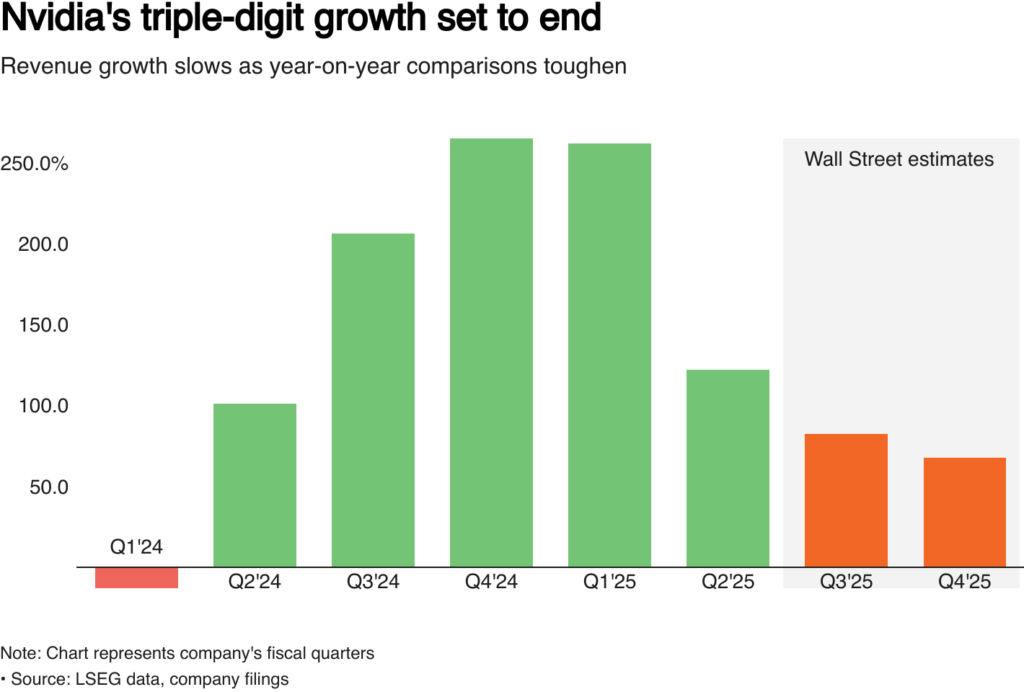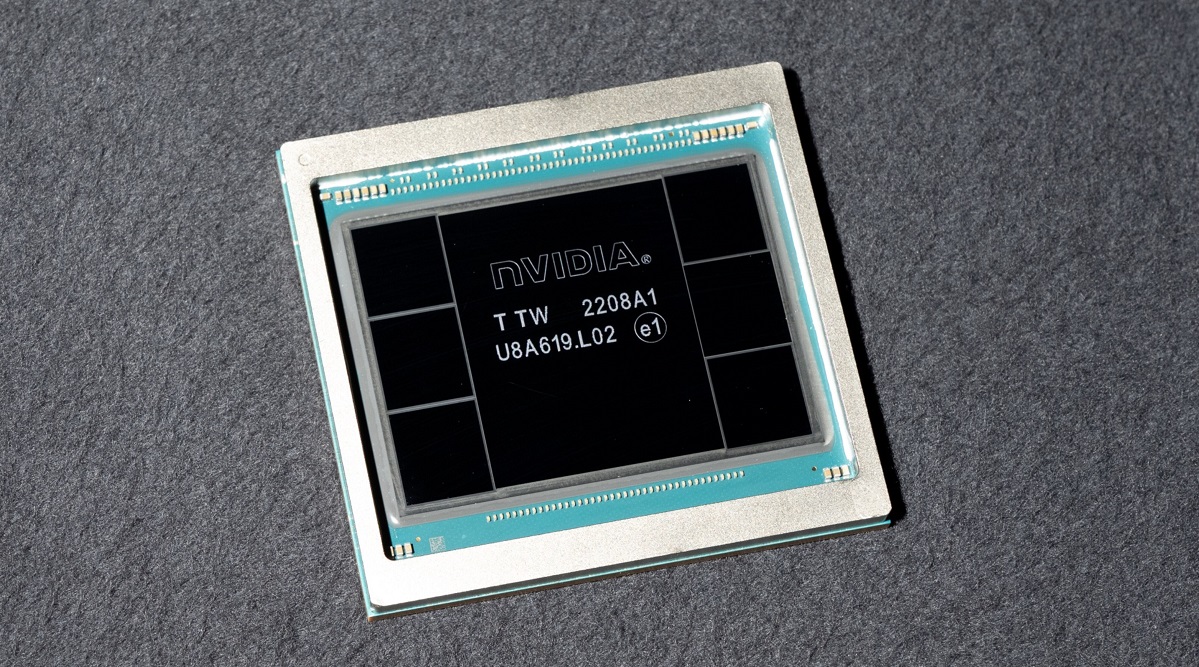Nvidia is poised to report third-quarter revenue of $33.13 billion, an 82.8% increase year-on-year, as analysts closely scrutinize the company’s performance. While this marks an impressive gain, it represents the slowest growth in six quarters, a significant deceleration compared to the doubling sales seen in the previous five quarters. As the AI boom evolves, Nvidia’s ability to ramp up production of its next-generation Blackwell chips will play a critical role in sustaining its momentum.
Investors are particularly focused on the fourth quarter, which ends in January and includes Blackwell chip sales. Analysts project quarterly growth slowing further to 67.6%, with Blackwell chips contributing between $5 billion and $8 billion in revenue, according to Piper Sandler. More bullish estimates, like those from Spear Invest, suggest as much as $12 billion to $13 billion. However, Nvidia’s supply chain constraints, particularly with contract chipmaker TSMC, could pose a hurdle. Even minor production delays could meaningfully impact revenues, Morgan Stanley analysts warn.

Nvidia’s recent success has hinged on its dominance in generative AI applications, powered by its industry-leading graphics processors. The company has ridden a wave of investment in AI infrastructure since OpenAI’s ChatGPT launch in late 2022. With a market share of 80% in AI chips, Nvidia’s CUDA software framework has cemented its place as an essential tool for developers and a key growth driver.
Yet, challenges loom. High research and development expenses and operational costs associated with scaling Blackwell production are expected to weigh on fourth-quarter margins, with adjusted gross margins projected to dip over three percentage points to 73.6%. TSMC has also indicated that AI chip production capacity will remain tight into 2025, adding to Nvidia’s potential bottlenecks.
Despite these concerns, the demand for AI chips remains robust. Cloud service giants like Microsoft and Amazon continue investing billions in AI data centers powered by Nvidia chips. Analysts agree that Nvidia’s position in the AI market is unlikely to be seriously challenged in the near term, even as its shares have nearly tripled this year, and its valuation now eclipses Apple’s as the world’s most valuable firm.
Nvidia’s quarterly performance could serve as a bellwether for the broader AI sector. As Blackwell chips promise up to 30 times the speed of their predecessors, their rollout will determine how well the company meets soaring demand. With Nvidia set to release its financial results on Wednesday, the coming days will offer a clearer picture of how its ambitious plans align with market realities.












